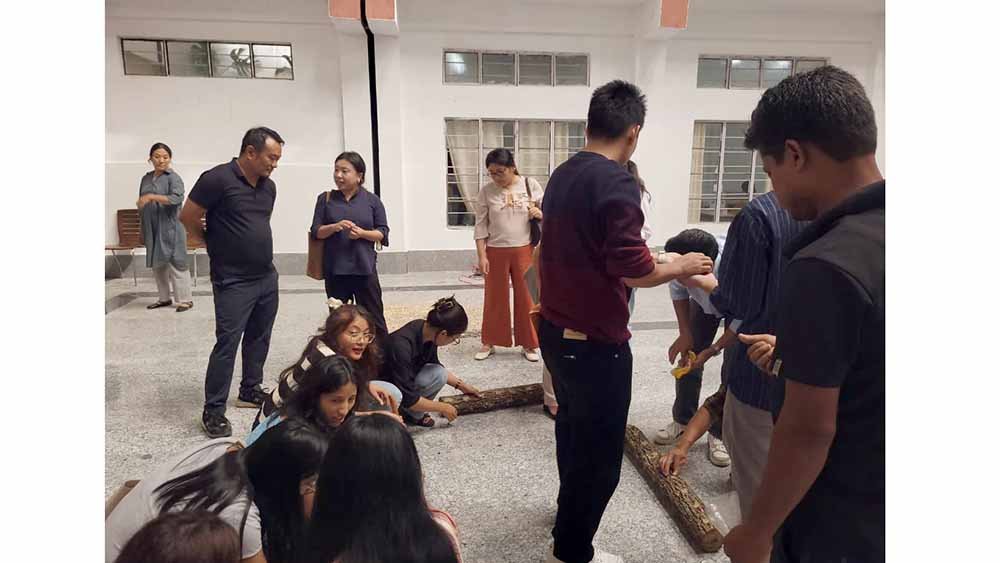A one-day basic training on Shiitake mushroom cultivation was organised by Women’s Studies Centre and the department of Education, Nagaland University (NU), Kohima Campus, in collaboration with Konger Agritech, Nagaland on September 2.
In a press release PRO, NU, informed that the programme aimed to enhance practical skills and employability through hands-on training and interactive sessions and was part of the University’s ongoing skill development efforts to integrate sustainable, practical skills into higher education.
Dean of the School of Humanities and Education, Prof. Jano S. Liegise, was the special guest of the session. He emphasised the importance of creating opportunities and diversifying careers by stepping out of the comfort zone and actively learning essential skills that increase employability and contribute to overall personal fulfilment and societal progress at large.
Founder director, Konger Agritech, Dr. Sosang Longkumer, beirfed on mushroom cultivation, as well as its potential for both marketing and home-based ventures. He discussed on the most common varieties such as Oyster, Shiitake and Button mushrooms along with their medicinal and nutritional benefits explained the step-by-step cultivation process.
A detailed step-by-step process of cultivating mushrooms was also highlighted.
Dr. Longkumer also stressed the importance of maintaining an ideal environment, including temperature, sunlight and hygiene, for flourishing mushroom growth. Economic advantages and practical business ideas of mushroom farming were also suggested to encourage the aspiring scholars and faculty members. The session concluded with an interactive Q&A.
The practical session was also led by Dr. Sosang Longkumer, demonstrating the step-by-step process of Shiitake mushroom cultivation. He explained the selection of suitable logs, drilling techniques, spawn inoculation, incubation, colonisation, and fruiting stages.
The inaugural session was chaired by a research scholar, Sharon Kikon, welcome address by Women’s Studies Centre, Director, Dr. Khotole Khieya, and vote of thanks by Research Scholar, Poukenhalakliu Newmai.
Basic training on Shiitake mushroom cultivation
DIMAPUR

